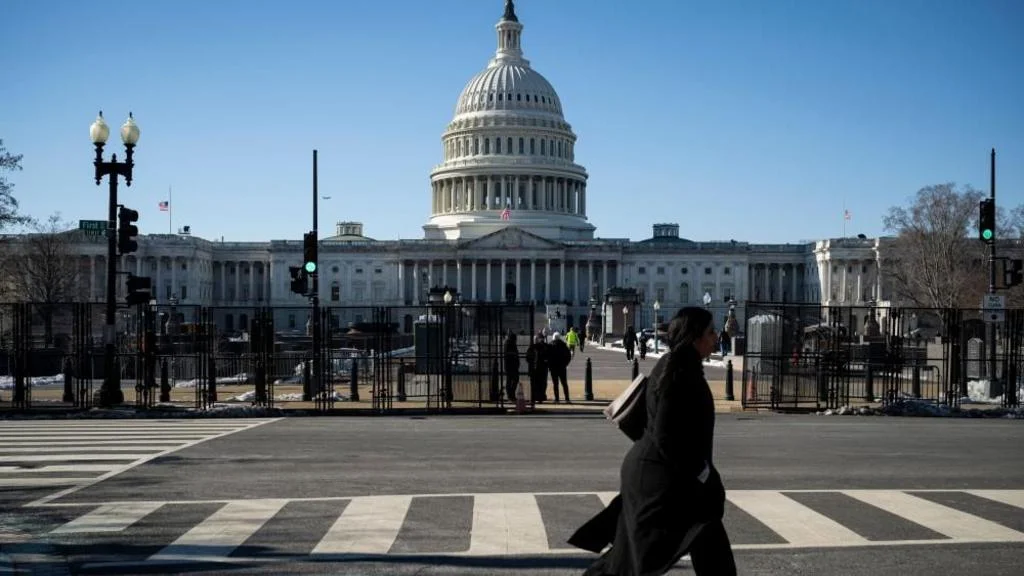
Could Trump’s New Tax Bill Upend California’s Way of Life?
In a high-stakes vote that kept Washington buzzing into the early hours, the U.S. House of Representatives has passed a sweeping tax and spending bill championed by President Donald Trump. This legislation, with its potential to reshape social programs and state budgets, carries profound implications for millions, especially in high-tax states like California. As lawmakers debate its future, the bill's far-reaching effects on healthcare, nutrition, and taxation could alter the economic landscape for years to come.
At its core, the bill extends the 2017 Trump tax cuts, estimated at $3.8 trillion, primarily benefiting high-income households. It also introduces measures like eliminating taxes on tips and overtime for a limited period, while capping the state and local tax (SALT) deduction at $40,000 for certain earners. However, these gains come at a cost: deep cuts to safety net programs. The Congressional Budget Office (CBO) projects nearly $700 billion slashed from Medicaid and $300 billion from nutrition assistance like SNAP over the next decade. For Californians, where over a quarter of the population relies on Medicaid, this could mean millions losing coverage or facing new work requirements.

Critics, including House Democrats, have decried the bill as 'Robin Hood in reverse.' Speaker Emerita Nancy Pelosi highlighted its inequity, stating, 'This is taking resources from where it is most needed and giving it to those who need it least.' In California, the impact is stark. The CBO estimates that households in the bottom 10% of income could see a 4% decrease in resources by 2033, while the top 10% gain 2%. Lawmakers like Rep. Lateefah Simon shared personal stories of poverty, urging, 'If you haven’t been poor, don’t legislate for the poor.' The bill's work requirements for Medicaid enrollees, mandating 80 hours per month of work or education, could disenroll thousands, especially in a state where 92% of recipients are already employed or caregiving.
Republicans, led by House Speaker Mike Johnson, defend the measures as essential for deficit reduction and economic growth. Johnson proclaimed, 'It’s morning in America,' framing the bill as a return to Trump’s 'America First' agenda. Yet, for California, the changes pose a budget crisis. With federal Medicaid funding reduced and restrictions on taxing healthcare providers, Governor Gavin Newsom may need to cut benefits or raise state taxes. The bill also blocks funding for gender-affirming care and curbs state AI regulations, further limiting California's progressive policies.

As the bill moves to the Senate, where revisions are expected, its passage underscores a deepening divide in American politics. Comparisons to past tax reforms show this one disproportionately burdens blue states, potentially widening economic inequalities. If enacted, it could signal a shift toward austerity, challenging states like California to balance fiscal responsibility with social welfare.
In summary, Trump’s tax overhaul promises economic relief for some but risks unraveling critical safety nets for the vulnerable. What does this mean for your community? Will these changes foster growth or exacerbate divides? Share your thoughts in the comments below and help shape the conversation on this pivotal issue.
Related issues news
What is the gop?
The Republican Party is often referred to as the GOP. This abbreviation stands for Grand Old Party. Its logo is an elephant. The Republican Party is known to support right-leaning ideologies of conservatism, social conservatism, and economic libertarianism, among other -isms.
What are the Trump tax cuts?
Major elements of the changes include reducing tax rates for corporations and individuals, increasing the standard deduction and family tax credits, eliminating personal exemptions and making it less beneficial to itemize deductions, limiting deductions for state and local income taxes and property taxes, further ...
What does the Big Beautiful Bill say?
Reconciliation bill includes no tax on tips, overtime pay, and car loan interest plus tax relief for seniors and incentives for domestic manufacturing.
What is a domestic policy bill?
Domestic policy covers a wide range of areas, including business, education, energy, healthcare, law enforcement, money and taxes, natural resources, social welfare, and personal rights and freedoms.